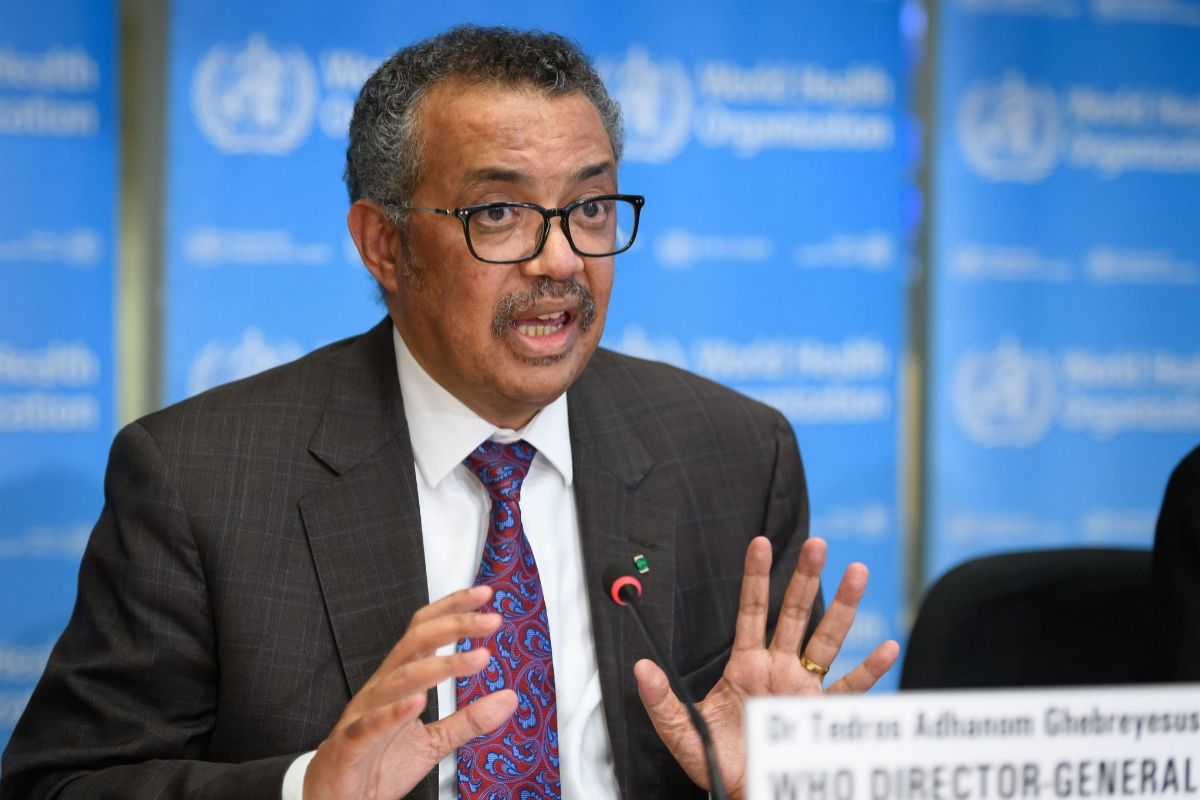WHO has raised the threat of coronavirus worldwide from "high" to "very high." "Our epidemiologists have been continuously monitoring the outbreaks, and now we have increased our assessment of the risk of spread and the impact of the coronavirus to a very high level worldwide," said the director general of this body, Tedros Adhanom Ghebreyesus , at a press conference.
As noted by Michael Ryan , executive director of the WHO, " with this we do not intend to alarm the population, only to warn governments of reality. Because the virus has a high impact and we observe that it is dispersed in some regions . charge of the situation, which is still contentible. "
Since yesterday, Denmark, Estonia, Lithuania, the Netherlands and Nigeria have reported their first cases. All these cases have links to Italy. The continuous increase in the number of cases and "the number of countries affected in recent days are clearly worrying," underlines the WHO director. 24 cases have been exported from Italy to 14 countries, and 97 cases from Iran to another 11 regions.
"We still don't see community broadcasting"
"There are different scenarios in different countries, and also within the same country. The key to containing the coronavirus is to break the transmission chains, " insists Tedros Adhanom Ghebreyesus, general director of the WHO. While that is the case, "we still have the possibility of containing the epidemic, " he says. "If strong measures are taken to detect cases early, isolate and treat patients and track contacts," he adds.
What they have observed at this time in the current outbreaks is that several countries have been linked to Covid-19 , but " most cases can still be traced to known contacts or case groups, " says Tedros Adhanom. "We still don't see evidence that the virus is spreading freely within communities."
Meanwhile, in the last 24 hours, China reported 329 cases of coronavirus the lowest data in more than a month. The Asian giant has reported a total of 78,959 cases to WHO and 2,791 deaths, only about fifty more than yesterday. Outside its borders, the escalation of contagion continues: there are 4,351 cases in 49 countries and 67 deaths, almost 900 more than the previous day.
Work for a first aid kit
At the same time, the work also advances in vaccines and therapeutics. "More than 20 vaccines are under development worldwide, and several therapies are in clinical trials . We expect the first results in a few weeks," explained the director of the WHO. Although he pointed out that everything cannot be trusted upon the arrival of a medicine or a vaccine, "today, there are things that each individual can do to protect himself and others."
The existing risks of each one, Tedros Adhanom said, "depends on where you live, your age and your general state of health. WHO can provide general guidance, but you should also follow your national orientation and consult local health professionals."
To end his speech, Tedros Adhanom listed a decalogue of actions that must be taken into account, while stressing that "rather than being afraid of the virus, fear, rumors and stigmata must be avoided" that the epidemic has triggered.
Ten WHO tips
1. Wash your hands regularly with an alcohol-based hand sanitizer or wash them with soap and water.
2. Clean surfaces regularly with disinfectant, for example, kitchen benches and work desks.
3. Find out about Covid-19 through reliable sources : local or national public health agency, the WHO website or your local health professional. Everyone should know the symptoms: for most people, it starts with a fever and a dry cough, not a runny nose. Most people will have a mild illness and will improve without needing any special care.
4. Avoid traveling if you have a fever or cough, and if you get sick while on a flight, inform the crew immediately. Once you get home, contact a healthcare professional and tell them where you have been.
5. If you cough or sneeze, do it on the sleeve or use a tissue . Dispose of the tissue immediately in a closed trash container and then wash your hands.
6. If you are over 60 years old or if you have an underlying condition such as a cardiovascular disease, a respiratory condition or diabetes, you have a higher risk of developing a serious illness . You may want to take extra precautions to avoid crowded areas or places where you can interact with sick people.
7. For everyone, if you don't feel well, stay home and call your doctor . He or she will ask you some questions about your symptoms, where you have been and who you have had contact with. This will help make sure you get the right advice, go to the right health center and prevent it from infecting others.
8. If you are sick, stay home and eat and sleep separately from your family , use different utensils and cutlery to eat.
9. If you have trouble breathing, call your doctor and seek medical attention immediately.
10. It is normal and understandable to feel anxious, especially if you live in a country or community that has been affected. Discover what you can contribute to the community.
According to the criteria of The Trust Project
Know more- Covid 19
- Coronavirus
- Science and Health
- Infectious diseases
- Respiratory diseases
Health: The US coronavirus patient was not tested for the disease for days
Health Coronavirus arrives in the US with a case in California
FranceA treatment against malaria is shown to be effective against coronavirus

